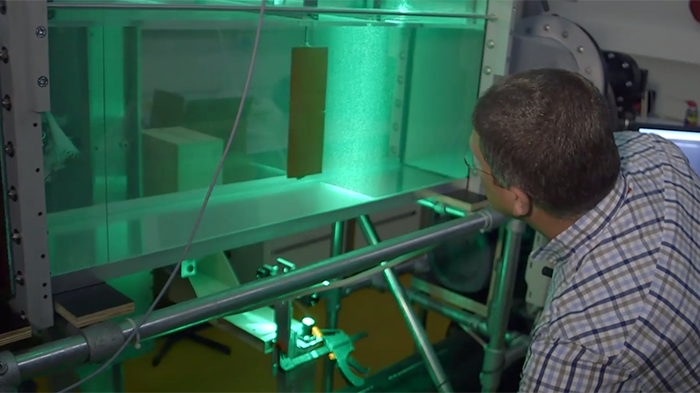Nieuwe vliegertechniek haalt energie uit ‘rustig’ water
Dr. Eize Stamhuis ontwikkelt met het bedrijf Sea Current een nieuwe methode om energie uit getijdestroming te winnen, gebaseerd op de techniek van vliegers. De methode kent grote voordelen ten opzichte van wind- en zonne-energie, omdat deze energie kan halen uit zeewater met een lage stroomsnelheid - bijvoorbeeld langs de Nederlandse kust. Een ander voordeel: getijdestroming is vrijwel altijd beschikbaar en 100 % voorspelbaar.
Bij de nieuwe techniek worden grote vlieger-achtige systemen van zo’n tien bij twaalf meter onder water geplaatst. Deze bewegen heen en weer in de stroming. De opgewekte energie wordt via een kabel aan land gebracht. Deze techniek is met name geschikt voor zeewater met een lage stroomsnelheid. Dat is wereldwijd in ruime mate voorhanden, en zeker voor de Nederlandse kust. Andere technieken hebben vaak water nodig met een hoge stroomsnelheid. Dergelijke locaties komen echter veel minder vaak voor.
Meer informatie

Video’s RUG
Het online videomagazine Unifocus belicht wekelijks onderwerpen die annex zijn met de Rijksuniversiteit Groningen, op het gebied van onderzoek (en samenleving), studentenleven, onderwijs, beleid en internationalisering. Andere video's staan in onze videoportal.
Meer nieuws
-
17 februari 2026
De lange zoektocht naar nieuwe fysica
-
10 februari 2026
Waarom slechts een klein aantal planeten geschikt is voor leven
